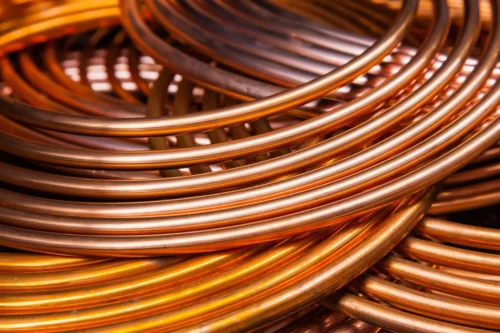Laurel Wire Co., Inc. is a premier supplier of different types of wire for various applications. We understand that each industry has different needs and requirements. We can consistently yield outstanding results with our in-house capabilities and years of experience in cutting and straightening wires.
Our commitment to enhancing our customer success leads us always to do our best and provide quality products that are second to none. So we’re more than capable of delivering wires made with expert craftsmanship. So whether you’re searching for a non-ferrous wire or other wires made of different materials, we’re your number one go-to.
What are Metal and Alloy Wires?
Wire is a common term that describes a flexible and cylindrical, metal strand predominantly used to carry electricity, transmit signals, bear a mechanical load, act as a heat transfer medium, or fasten objects together. It’s typically manufactured using the drawing method, which refers to drawing the metal through a hole in a die or draw plate.
Wires are also available in various metals and alloys, such as steel, copper, aluminum, and silver. Stainless steel wires are the most common because this alloy is known for its robustness and long lifespan, which is fundamental in stressful conditions. Meanwhile, solid copper wire solutions are ideal in electrical applications because of their high conductivity and excellent corrosion resistance.
Different Types of Wires
Stainless Steel Wires
We provide stainless steel wires available in the 300 and 400 series. These are ideal for applications where superior corrosion resistance is needed. You can opt for a stainless steel wire to best suit your needs.
The 300 series combines molybdenum, chromium, carbon, and nickel. They’re widely used for various purposes. That’s why many wires are made using this series. On the other hand, the 400 series is created out of chromium, manganese, and carbon. So it offers high wear resistance and incredible strength.
Non-Ferrous Wires
You may also opt for non ferrous wire. Fortunately, we provide copper, brass, and phosphorous bronze. Non-ferrous metals mean they are less susceptible to corrosion or rusting since they don’t contain any iron. Plus, they tend to be more expensive.
It’s worth noting that non-ferrous metals have low melting points, so they’re not great for high-temperature applications. However, they’re still an excellent option for those looking for a material that can hold up against environmental and chemical wear and tear. Plus, they don’t degrade or lose their chemical properties when recycled.
Additional Wire Types
- Thermothal: Thermothal P and Thermothal N are Type K thermocouples. They have strong resistance against oxidation. Plus, they can resist temperatures up to 500°C, which is better than other thermocouples.
- Kanthal D, AF, A-1 & APM: Kanthal is an alloy that belongs to the family of iron-chromium-aluminum (FeCrAl) alloys. These are used in high-temperature applications. And they’re known for having good stability and optimum performance. Furthermore, they have a low aging tendency, good protection against corrosion, and no scaling.
How to Choose the Right Type of Wire
Selecting the correct type of wire for your project will depend on your application since you must use a wire that will improve your operations. Distinguishing the wire’s properties and characteristics is one way to narrow your search. However, it’s also crucial to consider other factors, such as the wire gauge, flexibility, and temperature resistance.
The selection criteria include:
- Size and dimension of the wire: The wire’s size and dimension include gauge thickness, diameter, and overall length. These are important elements if you want to ensure the wire performs optimally.
- Material composition: As mentioned earlier, wires are made from various materials with unique properties. For example, a Type K thermocouple wire is used in nuclear applications due to its relative radiation hardness. Meanwhile, the versatility of stainless steel wires makes it common in residential and industrial applications.
- Tensile strength: Heavy-duty applications may require a wire with high tensile strength to withstand extreme loads and maintain its shape.
- Corrosion resistance: Choosing wires with outstanding corrosion resistance is crucial for applications exposed to harsh environments or corrosive substances.

